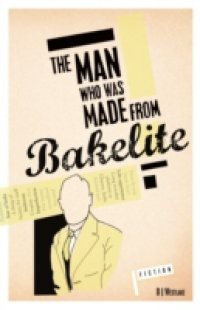Some things change over time - music, fashion, architecture, art - styles come and go in a constant flux. But people: do we learn from previous generations or is it completely necessary to repeat the mistakes of our forefathers before being satisfied we have experienced all senses available to us?From fictional conversations between a young man and his grandfather over just one weekend, you will get to know these two enigmatic men and learn of past family members, and you will peer into their heads, hearts and souls as they flounder with the grief of lost loved ones, enduring psychologically disturbing episodes which they struggle to master, marred by the non-actions of their fathers and also of each other. Art Cavender is desperately encouraged by his grandfather Cecil Beaumont to realise the essentials of life before making a grave error, but Art's fear of not being perceived as a great man constantly undermines Cecil's guidance. Time is running out and Cecil knows it - will Art take heed?Set in 1926, a time indeed of great change, the world is rebounding from the Great War financially and spiritually. The possibility of a second war is lurking, causing traditional values to be questioned and the pace of life to quicken. The age-old questions of generational differences are the core of this impassioned story, but it is for the reader to decide how similar, or otherwise, these two men are. THE FIRST GENUINE BOOK REVIEW: "I just finished your book and I've been amazed and astonished. You've written such a beautifully phrased story: so measured and rhythmic. It transports to a definite world where you meet people you believe in. At first I felt you were writing a tribute or a pastiche, and to some extent you are. That is where you borrow the language, ideas and mores of the 1920's: but it does more. It takes its ideas out of the story, because many of the issues about relationships and art and progress are universal. It's also paced so well, so very much in the atmosphere of its surrounds, these people and their particular view of civilization. You have such a good sense of rhythm: you really know how to write: it is the highest accolade to write something that is a joy to read out loud. That's what you've done. Not to mention making it all so utterly credible with the accuracy of the references. It's a splendid piece: thoughtful, learned, believable and - best of all - interesting and fruitful".

